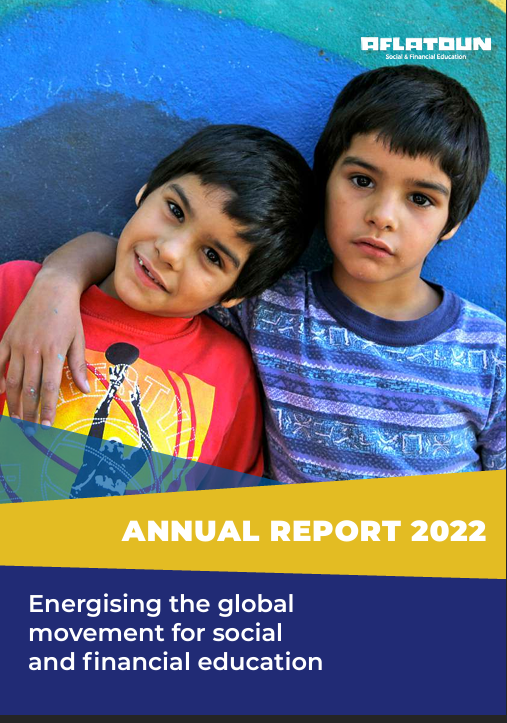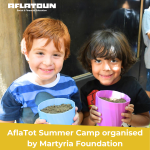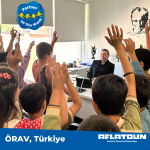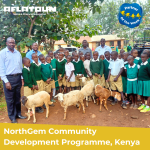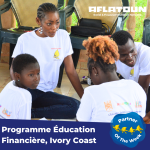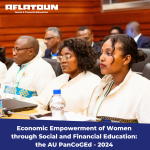On the occasion of November 25th, the International Day for the Elimination of Violence against Women, Aflatoun launches the “Education Without Limits: Young Women on the Journey to Empowerment” campaign, which will explore the Elimu Haina Mwisho Programme.
Elimu Haina Mwisho is the Skills Development Programme implemented in Tanzania in order to provide out-of-school young women with vocational training, secondary education, life and entrepreneurship skills.
This programme, which was concluded in 2021 after three years, was funded by the MasterCard Foundation and implemented by Karibu Tanzania Organisation (KTO) in partnership with Aflatoun International and in collaboration with the Ministry of Education, Science and Technology (MoEST). The programme was carried out in Folk Development Colleges (FDCs) across the country with the goal to create alternative pathways for out-of-school girls through education.
November 25th also inaugurates the 16 Days of Activism, and with our campaign, we want to draw attention to the connection of broader women economic empowerment with the elimination of Gender-Based Violence (GBV). During the pandemic of COVID-19, the risk factors for violence against women and girls (VAWG) including unemployment and poverty, have been exacerbated. Moreover, many of the root causes of VAWG, such as gender stereotypes and harmful social norms, have been aggravated. It has been estimated that 11 million girls may not return to school because of COVID-19, thereby increasing the risk of child marriage and perpetuating structural inequalities that reinforce VAWG (UN Women, 2021).
In this context, Skills Development Programmes can contribute to creating a safe environment for women and girls, where they have the opportunity to acquire knowledge and expertise that will allow them to thrive economically and personally in a community that protects and supports them.
The Need for Alternative Pathways to Secondary Education
The need for this programme spurs from the gender disparities present in the Tanzanian society, which restrict access to basic services for women and girls. In particular, Tanzania has one of the highest rates of child marriage and early pregnancy in the world (UNFPA Tanzania, 2018). In fact, according to the World Bank, the number of girls dropping out of formal education every year in Tanzania amounts to over 120,000, with an estimated 6,500 of whom abandoned school as a result of being pregnant or having children.
Through the Skills Development Programme Elimu Haina Mwisho, 41 FDCs were reached and 1,200 young women were empowered. The main achievement of this programme is that it will be extended to all 54 FDCs in the country. The Government of Tanzania recognised the approach used in the FDCs as an alternative education pathway for young women to complete secondary education. What is more, it is news of yesterday that the Ministry of Education, Science and Technology (MoEST) has announced that all girls and young women that dropped out of school for various reasons will be allowed to re-enter primary or secondary education. This decision is a crucial step forward for Tanzania, symbolising the government’s support for young women and girls, and allowing them to continue their education.

Skills Development Programme: Social and Financial Education
Through the Elimu Haina Mwisho programme, young women can participate in courses focusing on social rehabilitation, skill-building combining both theory and practice, and short-term internships. As a result, women gain the necessary skills to become either formally or self-employed or prepared to further their education.
However, the programme aims not only at empowering women economically, but also at developing their social skills, gaining self-esteem, raising awareness about women and girls’ situation in the community, and obtaining the necessary experience that will help them make responsible choices and tackle daily challenges.
The Inspiring Stories of Young Women Creating Their Own Path
After the conclusion of the programme, Aflatoun International and KTO conducted an evaluation to assess the impact it had on the participants.
The programme has had positive consequences on young women’s lives as well as on the lives of their families and communities. Young women have shown a positive perception of their own efficacy, self-confidence and increased knowledge of their rights. The outcomes of the programme include wider support to young women going through difficulties, from the wider community that protects them and their children, while supporting their right to quality education and safeguarding. In particular, participants were able to reconnect with their families and guardians, gaining their trust and support back, which suggests a great deal of sustainability.

